Eczema Treatment: 10 Home Remedies For Eczema
There is no denying the fact that eczema is uncomfortable and irritating. It makes your immune system go haywire, and your skin turns scaly and is covered with rashes. And to top it all, it itches like hell! It is a matter of great distress for those who suffer from it. But the good news is, you can easily control this frustrating condition. In this article, I have shared 10 natural and homemade remedies to get rid of eczema. You will also develop a better understanding of the condition, identify the triggers, and learn to control them accordingly. Read on to learn everything you need to know about eczema treatment.
Table Of Contents
What Is Eczema?
Also known as atopic dermatitis, eczema is a condition that makes your skin inflamed, rough, scaly, and itchy. In some cases, blisters may also appear. It also involves your immune system. This is a chronic condition and flares up occasionally.
There are several types of eczema. It is important to determine the type of eczema you are suffering from before developing a proper treatment plan.
Back To TOC
What Are The Types Of Eczema?
Shutterstock
It is best to identify what triggers your condition and avoid that. Although you may not cure eczema, you can control it or prevent flare-ups and lead a quality life.
Back To TOC
What Causes Eczema? What Are The Triggers And Risk Factors?
Shutterstock
According to the American Academy of Dermatology, the two most significant risk factors for eczema are:
It is still not clear how the genetic components cause eczema, and how exactly you inherit it. But those who suffer from eczema are more likely to have children with the risk of the condition.
There are a number of factors that can trigger eczema or make it worse. These include:
It is important to remember that the signs and symptoms of eczema may differ from person to person. And that’s why identifying them is essential for proper diagnosis.
Back To TOC
What Are The Signs And Symptoms Of Eczema? How To Diagnose It?
Shutterstock
You should look for:
[ Read: Home Remedies To Get Rid Of Itching Skin ]
Unfortunately, there are no laboratory tests for diagnosing eczema. But the doctor might conduct some allergy tests to determine if you are allergic to something. While diagnosing eczema, the doctor will usually ask about your family’s medical history. He or she may ask the following questions:
A dermatologist can tell by just looking at the types of lesions or rashes that you have on your skin. But sometimes, you may need multiple visits to determine what kind of eczema you have. Once your condition is diagnosed, the treatment will commence.
Back To TOC
What Are The Treatment Options For Eczema?
Shutterstock
Skin care is the key to treat eczema. Whether it is for adults and children or babies – this is what is required in case the eczema is mild. You have to be persistent in bringing about changes in your habits and lifestyle for treating your symptoms.
Lifestyle Changes For Eczema Treatment
Along with lifestyle changes, the doctor might also recommend using certain skin ointments and medications for healing eczema.
Medications To Cure Eczema
The doctor might give you mild over-the-counter medicines for controlling your condition. However, if that doesn’t work, he/she might recommend:
The doctor might also suggest some alternative therapies for curing your condition.
Therapies To Get Rid Of Eczema
You can also try some alternative treatment options on how to cure eczema fast.
Alternative Eczema Treatment Options
Other than these eczema treatment options, you can also try home remedies to control your condition. These ingredients might not cure eczema, but they will definitely help in reducing your misery.
Back To TOC
What Are The Home Remedies For Eczema?
Want to know how to treat eczema naturally? Well, here are some effective natural remedies for eczema that may help prevent future flares and ease discomfort during an outbreak.
1. Coconut Oil
It soothes skin irritation and reduces further risk of infection. Coconut oil helps in:
You can directly apply coconut oil to the affected area (unless you are allergic to it). Leave it on overnight for maximum benefits.
[ Read: Benefits Of Coconut Oil ]
2. Witch Hazel
Shutterstock
This works like magic to soothe inflammation and any skin-related issues, such as rashes and eczema (8). Witch hazel (Hamamelis Virginia):
Witch hazel extract (leaf and bark) is easily available in the market. You can dilute it with water and apply to the affected area directly or use it in wet compresses.
3. Lavender Essential Oil
Apart from uplifting your mood, lavender essential oil is very useful in treating skin irritation and inflammation. As per a study, lavender essential oil reduces pain and discomfort caused by itching in the area affected by eczema (9).
Add a few drops of lavender oil to your bath water or pour a few drops on a cotton swab and dab it on the affected area.
4. Licorice Extracts
Shutterstock
This is often used in various herbal products to treat skin issues like eczema (10). Licorice extracts have anti-inflammatory properties that prevent further inflammation (11).
You will easily get licorice root extract. Mix it with water and apply the paste on the affected area.
5. Jojoba Oil
Jojoba oil is best suited to treat any skin condition – from sunburn to eczema. This is because it is the only oil that closely resembles the human sebum. Jojoba extracts:
You can directly apply jojoba oil to your skin. It is also an excellent carrier oil. You can mix essential oils in it and then apply the blend to the affected area.
6. Cod Liver Oil (Fish Oil)
Shutterstock
Fish oil is considered beneficial for health because it contains omega-3 fatty acids. A study says that feeding fish or cod liver oil to kids during early childhood can prevent eczema (13). This is mainly because it contains n-3 polyunsaturated fatty acids that play a key role in preventing eczema.
Give your child a lot of fatty fish, such as herring and salmon. If they cannot eat fish, get cod liver oil or fish oil supplements from the medical store.
7. Probiotics
We all know how much gut health contributes to our overall wellness. Thanks to the healthy bacteria, a number of issues can be prevented – simply by consuming probiotics. However, in case of treating eczema, the role of probiotics is strain specific. This means that the healing of the condition depends on the specific strain of the bacteria contained in the probiotic. A study shows that kids (till the age of 2 years) who were fed probiotics containing Lactobacillus rhamnosus were able to prevent eczema. Its extended effects were present until the age of 4 (14). Another placebo-controlled trial showed that feeding Lactobacillus rhamnosus, Bifidobacterium longum, and L. paracasei(probiotics with these strain of bacteria) helped in reducing the risk of eczema prenatally and postnatally in infants with mothers who had allergic skin conditions (15).
8. Aloe Vera
Shutterstock
This herb is well known for its soothing effect on the skin. Aloe vera works well in soothing eczema as it rehydrates the skin and works wonders in controlling the dryness (16).
What you can do is scoop out aloe vera gel from the plant and apply it to the affected area.
[ Read: Aloe Vera For Psoriasis ]
9. Oatmeal
This is extensively used in dermatology to soothe itchy and irritated skin. It has
10. Bleach Baths
Shutterstock
Considering bleach bath for eczema treatment is one of the effective methods. Although they will not cure your condition, they will definitely provide relief and reduce the severity of eczema (18). They help in:
Prepare a bleach bath by mixing half a cup of bleach in a tub of warm water. Soak your entire body or affected area in this for at least 10 minutes.
While home-based treatments and medications will help in healing your condition, you also need to take care of your diet. Several foods help in diminishing the impact of eczema and promote healing.
Back To TOC
Does Diet Affect Eczema? What To Eat And What To Avoid?
Shutterstock
Here I have discussed about eczema cure diet and what foods to avoid to make it less worse. Read on to know what are they.
Include anti-inflammatory foods in your diet like:
Fatty fish like salmon, tuna, sardines, albacore, and herring are best for preventing eczema and reducing its effects.
[ Read: Foods Rich In Omega 3 Fatty Acids ]
Gut-friendly bacteria not only keep you healthy but help your body fight inflammation and conditions like eczema. Consume a lot of yogurt that contains active cultures, tempeh, and miso soup. Also, include fermented food items and drinks in your diet, such as kefir, sauerkraut, kombucha. These also contain probiotics.
Flavonoids fight inflammation and keep your skin healthy. So, consume colorful fruits and vegetables. Do not make faces at broccoli because it is rich in flavonoids. Also, have green leafy veggies, such as kale, spinach, and fruits like cherries and apples.
Although foods might not directly cause eczema, they might trigger the symptoms or cause allergies and allergic reactions. So, it is better to avoid them. They include:
People who have dyshidrotic eczema (a condition that affects the feet and hands) should avoid foods that contain nickel. Nickel is often found in soil and can thus be present in foods. So, avoid food items such as:
Certain factors increase your chances of getting eczema. Hence, you need to take precautions to prevent it.
Back To TOC
Precautions For Eczema: How To Prevent It
Shutterstock
When your skin becomes too dry, it becomes scaly and itchy. To prevent that, use a good quality moisturizer. Do not let your skin feel dry. Use oils, creams, and moisturizers religiously. Follow this especially during winter when the air gets dry. If possible, install a humidifier in your home.
[ Read: Ways To Moisturize Your Skin Naturally ]
Observe how your skin reacts to certain products. Be careful in choosing your perfumes and soaps. Choose detergents and soaps that do not contain any dyes or added perfumes. In most of the cases, these trigger eczema.
Avoid any fabric that is too tight or rough or makes you feel itchy. These often trigger eczema. Go for soft fabrics that are gentle on your skin.
Dust particles in the air often cause rashes. Or you might be allergic to cigarette smoke or pet dander. The best way is to keep your home clean. Stay away from the smoking zone or avoid being in areas where people are smoking.
Now, here’s the reality check. If you think that you are suffering alone, it’s not true. Here are a few facts.
Back To TOC
Eczema Facts
Most importantly, do not freak out if your eczema flares up. Just relax. Because stress and anxiety will make it worse. I hope these natural eczema treatment options and tips will help you manage your condition. And if you know any other effective strategy for managing eczema, do share it in the comments section below.

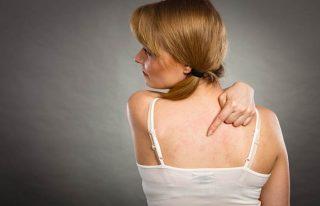
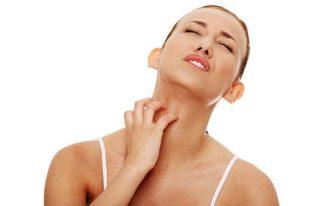
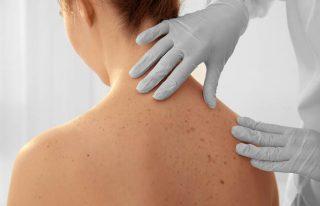

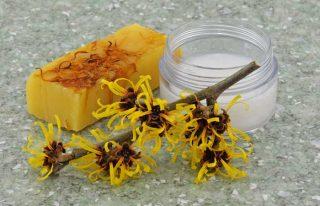
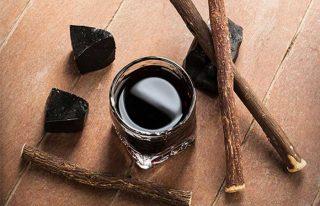
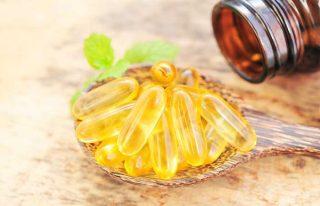
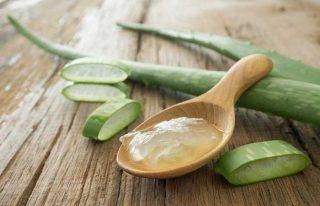
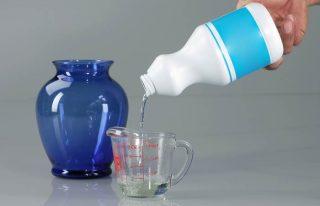

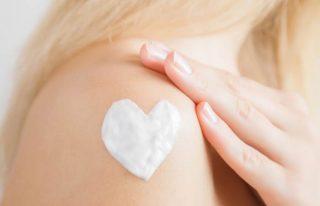
No comments